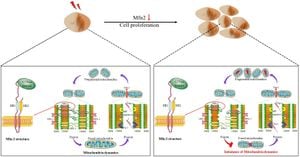The rapidly changing financial technology sector is gearing up for 2025, with new trends promising to reshape the industry. According to research by the FinTech Association, two of the key trends to watch are trust-centricity and the growing role of artificial intelligence (AI) within business processes. Olga Sorokina, member of the Board of Directors and Deputy General Director for Business Development at Insurance House VSK, shared these insights during the "FinTech Association: Trends 2025" conference, detailing how these shifts will impact market players.
Trust-centricity, which focuses on fostering loyalty and trust among customers, has emerged as the primary business trend for 2025. Over the past decades, the insurance sector has become increasingly consolidated, seeing major industry players invest heavily to build customer relationships. VSK is positioning itself as the company of conscious choice for its clients. Sorokina emphasized, "The essence of trust-centricity lies in first providing the user with convenient services, which then encourages them to become loyal customers." To this end, VSK plans to scale its Digital Clinic, making several service functions accessible to all policyholders starting March. This initiative, which includes enabling clients to consult with medical advisors via chat, demonstrates the balance between customer service investment and long-term loyalty enhancement.
Another significant trend identified by Sorokina is the integration of AI as part of the central technology architecture of companies. AI is transforming business models, and some organizations build their foundations on "AI-plus" technologies, generating competitive advantages as they transform operational strategies. This is particularly notable in the insurance sector, where processes like claims adjustment, sales, and underwriting are increasingly powered by AI.
For VSK, the development of a comprehensive AI strategy is currently underway, highlighting the importance of these technologies for future growth. Sorokina stated, "At present, the penetration rate of artificial intelligence within our business processes is at 11%. We are continually assessing the business impact of AI applications, which demonstrates our significant potential for implementing advanced digital services." The momentum surrounding AI is expected to facilitate effectively scaled integration and enhanced processing speeds across operations.
The scale of Open Data, identified as the locomotive for digitalization, is also poised to drive FinTech growth. Being the first to pilot Open API within its industry, VSK has set a benchmark with its initiative to share data with the state information system "ERA-GLONASS," enhancing their ability to process insurance claims. This collaboration also aids efforts to combat fraudulent activities effectively, marking another step forward for the company.
Notably, the FinTech Association's annual report, highlighting "3x10 Key Trends," analyzes macroeconomic, human, and technological factors influencing IT trends formation. An increasing number of companies are leaning toward hyper-automation and Robotic Process Automation (RPA) as they seek efficiencies within their operational structures. The FinTech ecosystem benefits from initiatives and meetings, such as the upcoming business dinner on February 19, 2025, focusing on RPA and AI. This event aims to present leaders, such as project head Vladimir Fadeev from the First Bit, who will share insights on practical applications of these technologies and address their future within business processes.
Overall, the convergence of trends highlighted by the FinTech Association points to a dynamic future for the financial services sector. With AI and trust-centric strategies at the forefront, organizations are set to navigate the challenges of 2025, equipping themselves to thrive amid technological advancements and shifting customer expectations.



